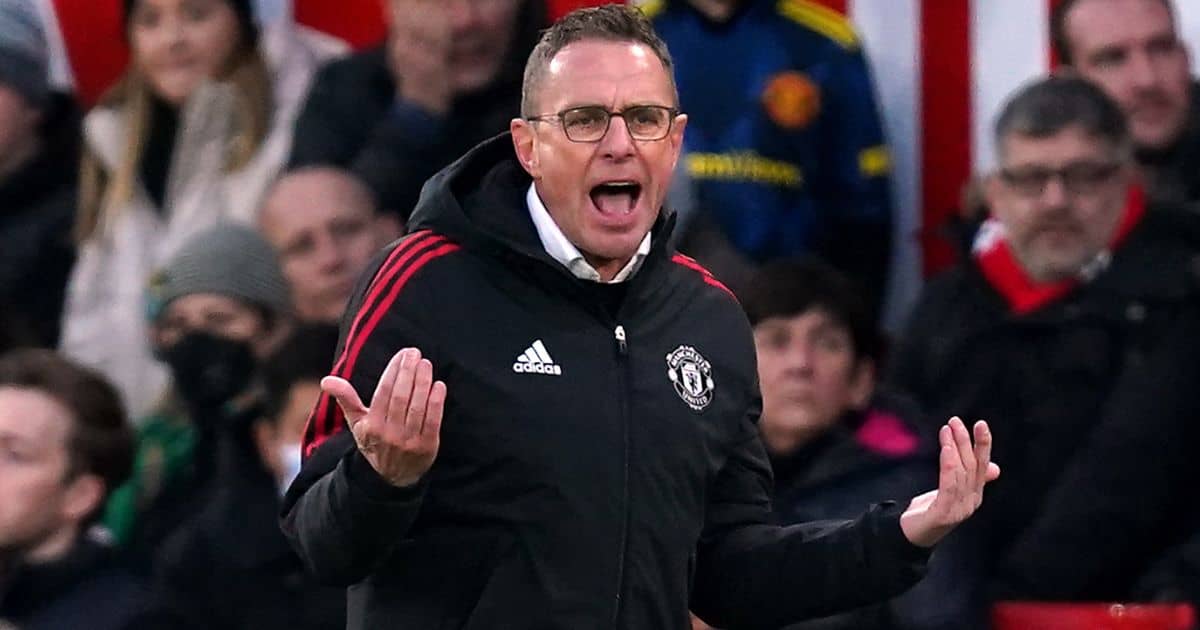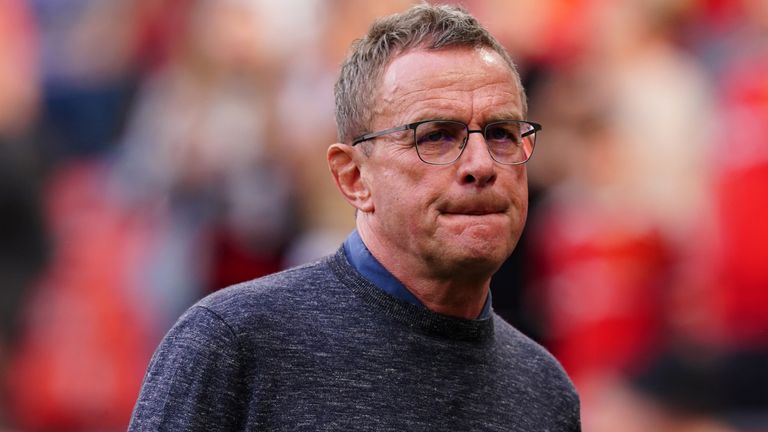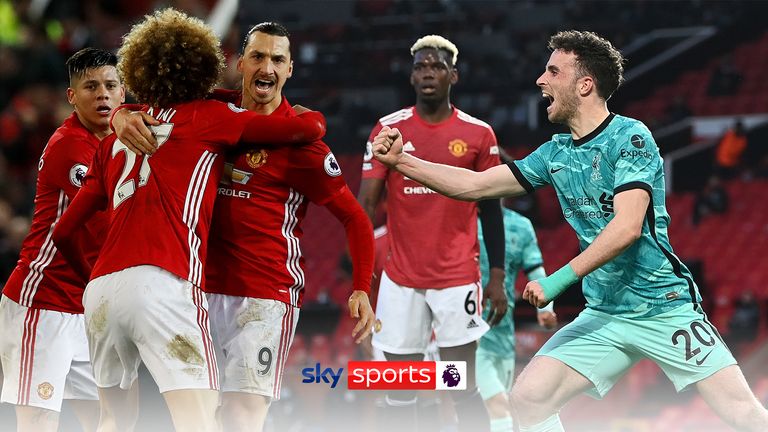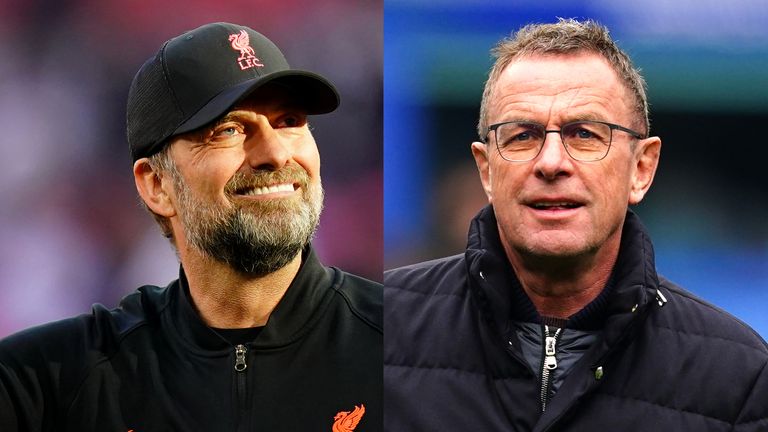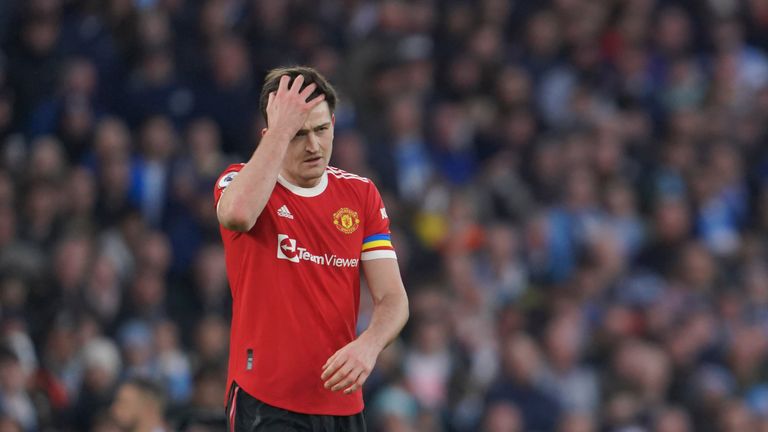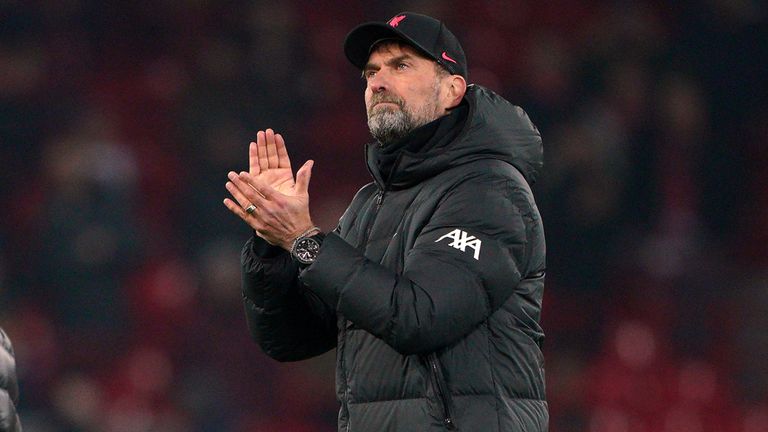For a man that has been obsessed with English football since 1979, when he turned out for non-League Southwick while enrolled at the University of Sussex, not much has staggered Ralf Rangnick since taking interim charge of Manchester United.
He has been unnerved, however, by the hard-wired portrayal here of a manager as an all-powerful, all-knowing miracle worker.
The seduction to believe in a messianic figure is perhaps most pronounced at Old Trafford, owing to the seismic achievements and influence of Sir Alex Ferguson’s 26-year spell.
It has significantly shaped the club’s floundering since his retirement, with United held siege by the past as Tuesday’s opponents Liverpool and neighbours Manchester City were built into intelligent modern bastions.
Even still, there is a tendency to credit Jurgen Klopp and Pep Guardiola in totality for the successes of their teams, despite both tacticians stressing the importance of the people and practices behind the scenes.
And with United on the verge of appointing Ajax’s Erik ten Hag as their next permanent manager, Rangnick has reminded that an awful lot more needs to change than the face in the dugout if they hope to eventually rival Liverpool and City.
“In Germany we have a head coach and then there is usually a minimum of two skilled people continuously in the club on a longer-term basis responsible for recruitment, scouting and any daily operation,” he told Sky Sports News.
They also bring in the right and best possible head coach for the team. This still hasn’t got a big tradition here and so the job of a sporting director or director of football – only a few clubs have that.
“I know that for the future, and I think even more so for a big club like Manchester United, you can’t put all those jobs and tasks and the whole responsibility only on the shoulder of one person – on the manager. I’m not sure if this can be dealt with by one person, no matter how good he is.
“I know Liverpool, Manchester City and Chelsea also have smart people who take care of recruitment, scouting, the medical department… I think this is also an issue for our club, where they have to pay attention to.”
Rangnick deserves an audience when he speaks about shrewd, sustainable structures. Hoffenheim were transformed from a third division club with no medical, scouting or operations arms to technological pioneers by his design.
The recruitment and academy models Rangnick implemented at RB Leipzig and Red Bull Salzburg have become a template across the game, with their market gems moving on to bigger clubs for hefty profits.
Julian Nagelsmann, the Bayern Munich manager, summed him up as thus: “He puts the puzzle together, he makes a club whole. It’s sustainability with style and being really football smart.”
It is no wonder then that Rangnick’s appointment by United on an interim basis followed by a two-year consultancy role was widely applauded.
It was imagined he would have scope to overhaul operations, but the 63-year-old was tasked with focusing on salvaging the season by concentrating on training and games.
He has still offered guidance on what should change structurally, and whether United apply it remains to be seen.
“I’ve done that already after the first couple of weeks and regularly since then,” Rangnick says. “I told the board members about what I have experienced so far, and what I think are the important things we have to pay attention to, and where we have to make sure that we maybe get better at.
“But right now my full focus is on the remaining six games that we have to play and that we hopefully play as successful as we can be. All the rest has to wait until the end of the season.”
United are in a predicament of fire-fighting to finish in the top four now while drafting a full-scale rebuild. The squad is wholly unbalanced – despite a gross transfer spend of £1.4billion in the last decade – and needs intense surgery.
There is no on-pitch identity and no off-pitch surety. We drilled down into the immediate issues facing United and the ones they need to remedy from the summer.
Rangnick Q&A: ‘We could have been fourth already’
Ralf, you knew you were walking into a difficult situation but was it more challenging than you anticipated?
“I think we had a very good start, winning the first two games without conceding a single goal. The first aim was to reduce the number of goals conceded, which we did even right now. We reduced the amount of goals conceded from 1.7 to 1.1. But in total, obviously the problem was to be playing on a high level consistently and we didn’t manage to do that. We’ve had far too many games when we were one or two up, and in the end only got a point. So we dropped, I would say eight, if not 10 points in games where we were ahead and didn’t win at the end. We also had some injury problems and some things that happened that couldn’t be foreseen, like with Mason Greenwood. He was one of our most promising players at the time, almost playing every game. We are still in the race for number four, but we could easily have had around eight points more.”
You spoke there about being ahead in games, but not having the stability to see it out. Is that psychological? What would you put that down to?
“Yeah, it’s got to do with confidence for sure. But it also has to do with finding the best possible balance, offensively and defensively. We have a lot of offensive players, who should normally play. But at the same time, we didn’t have the same number of defensive, for example, midfield players. Fred and Scott McTominay are missing. We don’t have many other defensive midfielders and that has been a problem in the past, and that’s why we didn’t see those games out after being one or two up.”
So would you say offensive protection is one of the core struggles at the moment?
“It’s also a problem to score enough goals. But again, against Norwich we scored three, we scored three against Tottenham, but we also conceded two in both games. And if you’re 2-0 up in your own house against Norwich after 30 minutes, you shouldn’t get problems, you shouldn’t make that kind of game as difficult as it then was at the end. That’s why we are still struggling, otherwise we would’ve been fourth already.”
How do you change that? A lot of the players missing are of the defensive ilk, goals are reliant on Cristiano Ronaldo. So we talk about balance, but how do you get that and address the psychological problems?
“The only thing to do that is being successful. So that’s why it was very important to win that game against Norwich at the end. We have to try and win as many games as we possibly can, and hopefully we can do that at Liverpool.”
You’ve spoken quite a lot about physicality and United lacking it. You reference Liverpool there, one of the most aggressive teams in and out of position in the world. How will you find physicality against them? Is it something that can be conditioned on the training pitches?
“With Liverpool, it’s clear why they are playing as aggressive as they do – it’s since Jurgen arrived. If you compare the squad that he inherited six years ago and compare it with the present, I think there are maybe four or five players still there. All the others signed since then have been signed exactly under those premises: how do we want to play? They have to be able and willing to run and sprint a lot. They have to be physical. They have to be technical. They have to be clinical. The profile for each position has been clear and that’s why they are where they are. And, here at Manchester United, this hasn’t been the case with every change of manager. New players came in, but it was not under that pre-condition of how do we want to play, and this is for sure something that needs to be changed in the future, but this doesn’t help us. Now we have to play with the players that we have available and get the best out of them. It will be difficult for us at Anfield. We know that we have to raise our level to the highest possible that we can. Our ambition is to win that game, and this is how we are going into it.”
You say it doesn’t help right now to dwell on the fact that recruitment has not been good. You have to find a solution – so is that solution conditioning, can physicality and aggression on and off the ball, rapid transitions and such be drastically improved on the training pitches?
“To a certain extent, yes. But obviously it’s important that you have players who have that in their DNA, who are in a way naturally born aggressive and this is something that is difficult to change. But as I said, this is something for the future. Right now it’s about getting the best out of the players and pulling together a formation and a shape on the pitch where we can be successful.”
Rangnick Q&A: ‘Three or four new players not enough’
Has the noise around the new manager affected the squad and the staff?
“I don’t think so, no. The players have to give their very best no matter who the next manager will be, and if he’s announced in one or two or three weeks, I don’t think that this affects the current situation we’re in. But yes, of course it’s important to know who will be the new manager, because to start the recruitment process, to find the best possible players only makes sense if you know who will be the manager and how does he want to play. There might be a couple of players – and I have already named those players to the board – that independent from formation, from style of football, and independent from a new manager, that could be of interest for a club like United. But in general, if you look at the size of the way the team needs to be rebuilt, I mean, it’s not enough to bring in three or four new players. It will be more, bearing in mind how many players will no longer be here with the contracts running out.”
With that squad rebuild, you’ve spoken about a striker before and the necessity of United investing in an elite forward, but midfield requires a lot of surgery as well?
“Yes, I think apart from the goalkeeping, we need to make sure that we improve the squad in all areas. To bring in players who really help the team to get better – again, it’s about the profile. What kind of players do we need in order to play whichever kind of football we want to play?”
Just on that, you mentioned the goalkeepers. Has United’s build-up from the back suffered because David de Gea, while being an extraordinary shot-stopper, doesn’t really progress play?
“It hasn’t been an issue this season actually, but again, this is also something that needs to be taken into consideration when you know who your manager is. I mean, for me, David has been outstanding since I arrived. But if you look into Manchester City and Liverpool and how they’ve invested in goalkeepers… but again, this is an issue we can only speak about when we know who will be the new manager and how does he want to play.”
One point on building a squad for the new manager: at a big club, should you not rather be planning for the next five, eight, 10 years in terms of the direction you want the club to go in and what the identity should be, and then recruit managers based on that? And recruit players based on that rather than the man in charge?
“Well, that’s it. That’s what we actually did both in Hoffenheim and with Leipzig and Salzburg. But again, this is rather the exception to the rule. It is one possible pathway that you have people who more or less tell the club and the supporters what our corporate identity should be and how do we want to play. What kind of manager do we need in order to play like that, and what kind of players? As I said, this role has so far not a big tradition in this country, and I don’t know if this can or will happen in the future.”
Rangnick Q&A: Fans will support us at Anfield
On Liverpool, you’re quite familiar with their style of play with Jurgen, with many of their players whom you scouted at previous jobs. But on Naby Keita in particular, he came with such a big billing – “two players in one” – and yet we haven’t really seen the best of him for a variety of reasons. I don’t know if you’ve watched him recently, but it seems like he’s finally consistently being that aggressive player that everyone knew…
“Yeah, I think it was for him difficult because I’ve known him from the very first day when we signed him from a third division team in France for Salzburg. After two years, he had a big offer from PSG, but we convinced him to stay within our family and move to Leipzig. Then he had an amazing two years there and Liverpool came with that offer. And he’s the kind of player who needs not only the attention of the manager, but everything has to be in the best possible way. And I think for him, it was difficult to get used to that new style of football, to the level of expectation. But as you said, my feeling is that this season he has been coming close to his very best. He’s getting more game time, more regularly playing also from the beginning, and he can still be an amazing player. At No 8, he’s one of the best we ever had.”
In terms of your own squad, it’s challenging enough to represent Manchester United with the pressures and the expectations, but is there an element of players also being so clouded by all the noise around the club: the protests, the booing…
“Yeah, but this hasn’t happened in the past. It was the first time the last Saturday against Norwich, in this instance with Paul Pogba. I don’t think that it makes sense to have a go at one individual player because it is a collective responsibility: the whole team, the whole club, everybody who has been in charge. I don’t think this has any negative effect on our performance and I’m pretty sure that our supporters, having got to know them in the last five months, that they will support the team against Liverpool and in the remaining five games.”
Credit: Sky Sports

